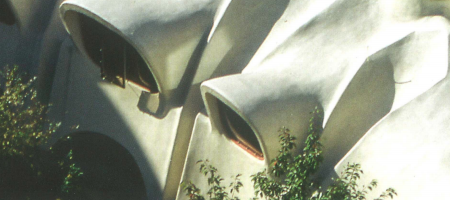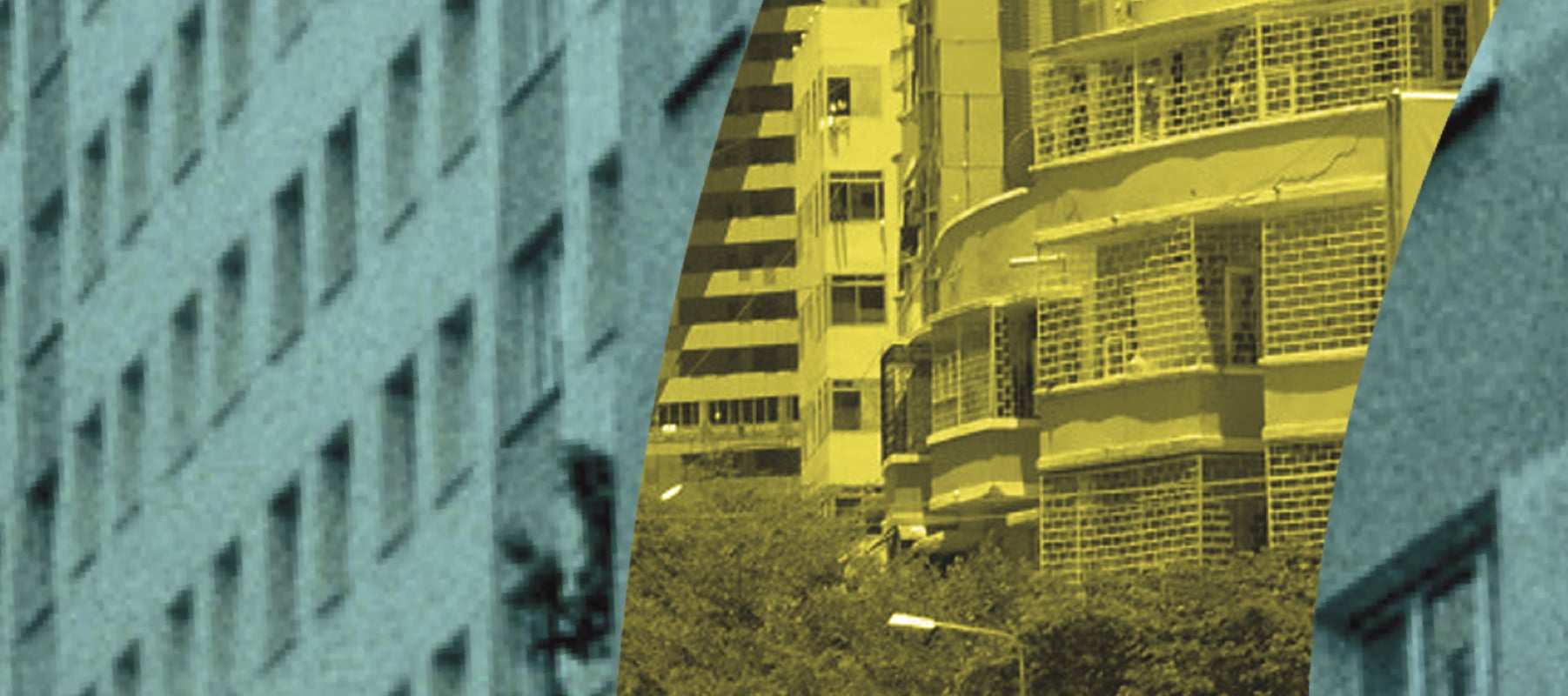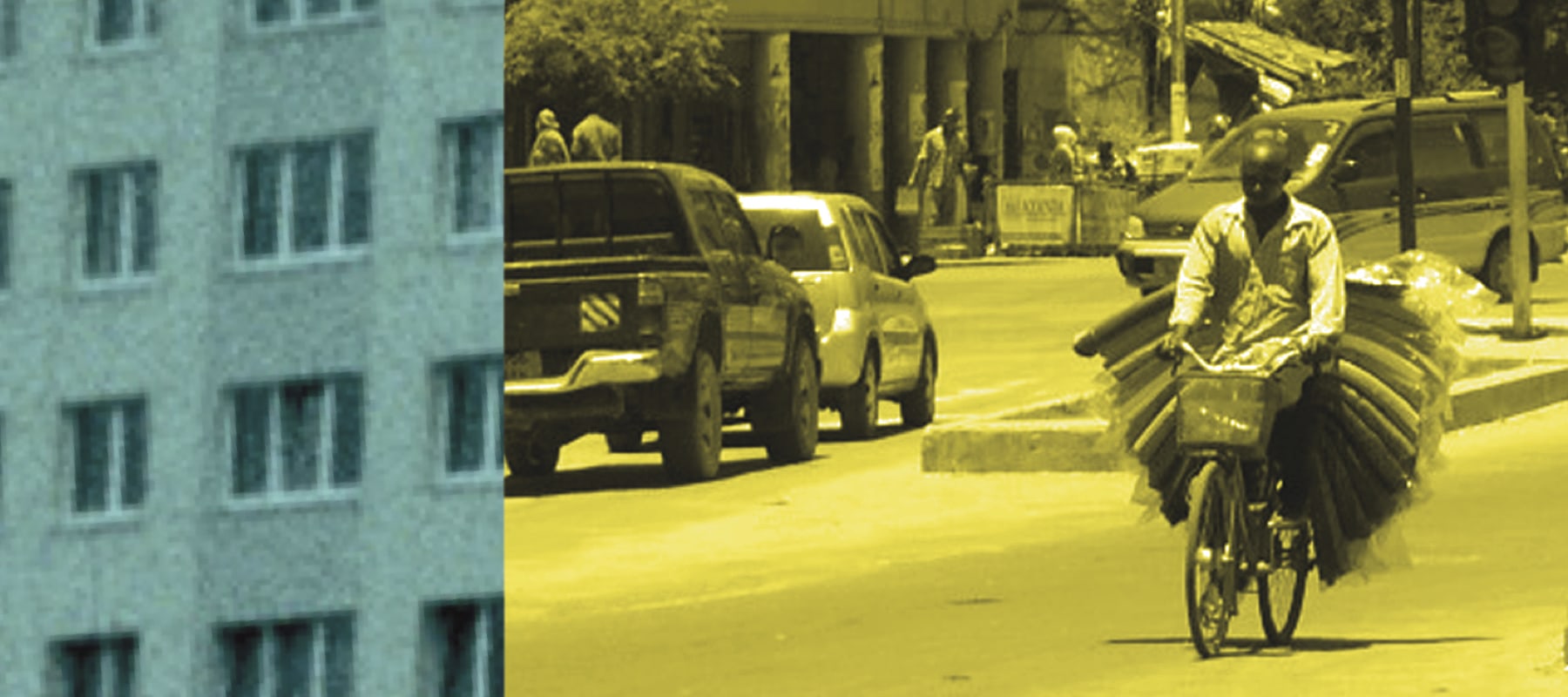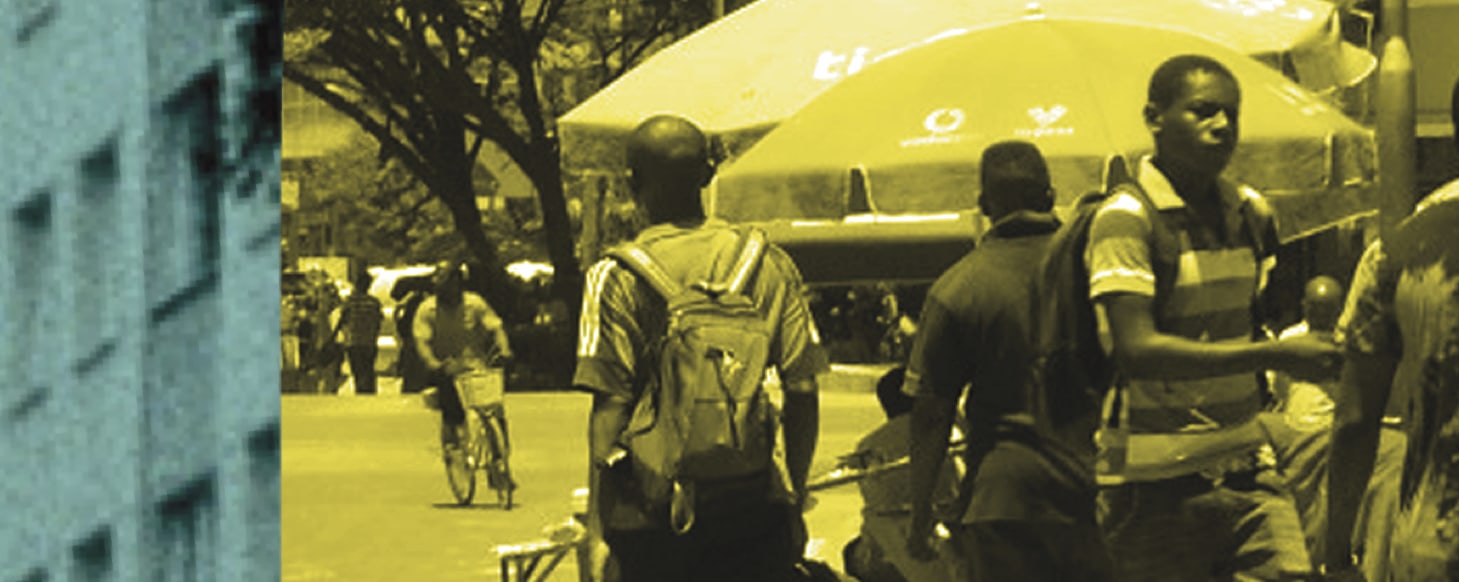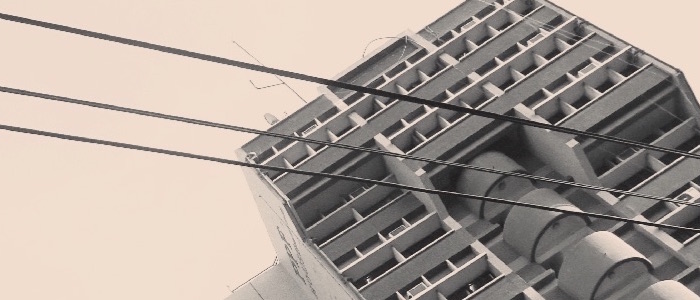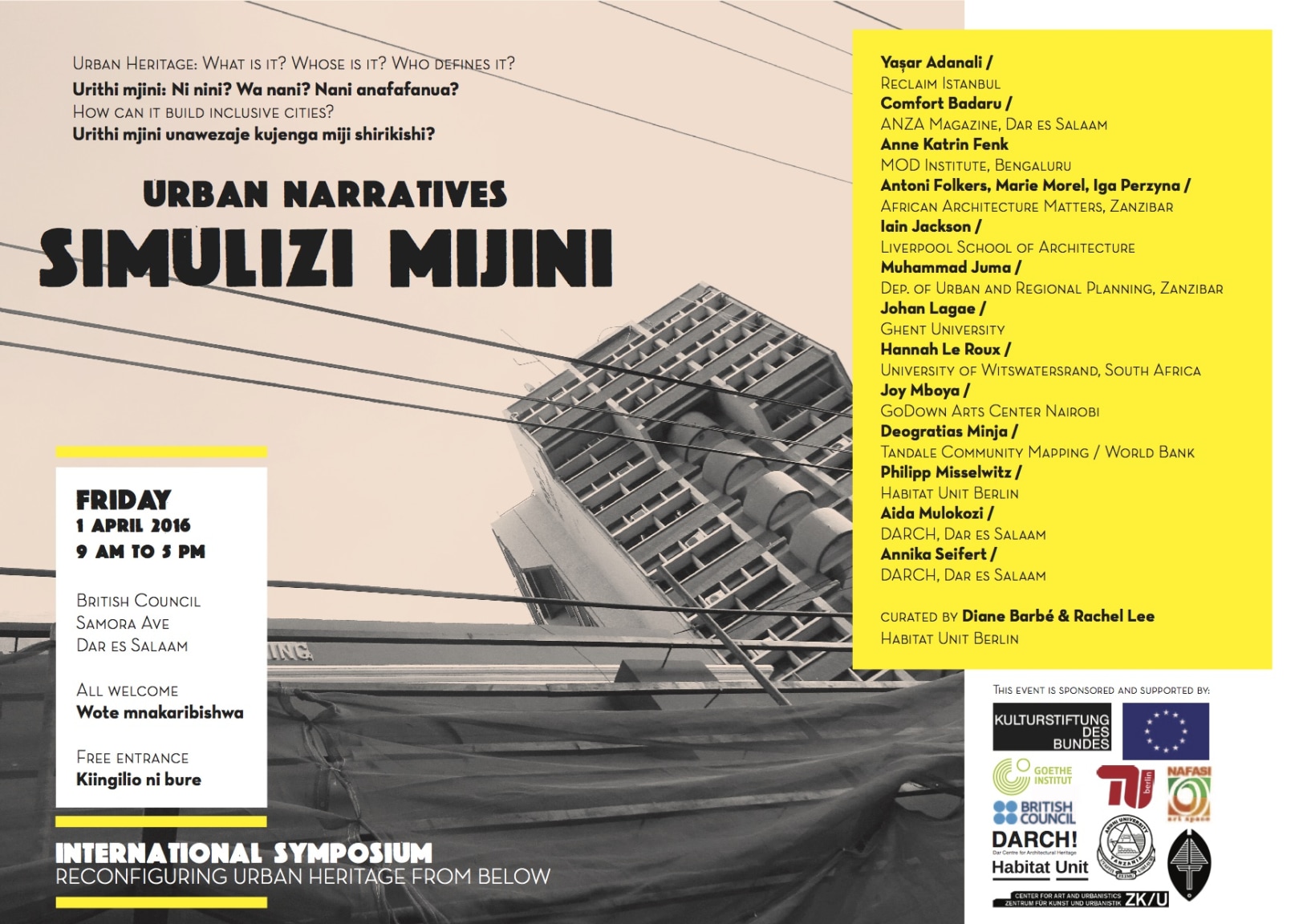READ A REVIEW BY M. MÜLLER (pdf)
16-17 MARCH 2017
SIMULIZI MIJINI CONFERENCE
Technische Universität Berlin
Hardenbergstr. 16-18, 10623 Berlin
Find out more about the speakers
17-26 MARCH 2017
SIMULIZI MIJINI EXHIBITION & EVENTS
Zentrum für Kunst und Urbanistik (ZK/U)
Siemensstr. 27, 10551 Berlin
Find out more about the artists
Facebook event
International Conference
Urban Heritage Activism
Berlin, 16-17-18 March 2017
Urban Heritage: What is it? Whose is it? Who defines it?
Urithi m’jini: Ni nini? Wa nani? Nani anafafanua?
Simulizi Mijini/Urban Narratives is an interdisciplinary inquiry into urban heritage in Dar es Salaam, Tanzania, and Berlin, Germany. Through artist residencies, student exchanges and discursive events, the project has developed a more inclusive approach to urban heritage –embracing multiple voices and supports diverse readings of urban environments from a ‘bottom-up’ perspective (also called ‘from below). Two summer schools, 10 artist residencies and a symposium in Dar es Salaam have already taken place to start discussing the topic, and unprecedented bridges have been created between the two cities: by connecting contemporary cultural actors, and by proposing a re-reading of shared urban histories.
Simulizi Mijini culminates with a two-day international conference at the TU Berlin (16-17 March 2017) and a companion exhibition at ZKU (17-26 March 2017), along with other cultural events (tours, magazine launches, workshops).
At the Berlin conference, we will focus on heritage ‘from below’ –urban history as it is lived, represented and transformed by local communities in diverse geographical and cultural contexts. Speakers will address political ramifications and power struggles related to heritage; they will introduce the failures and solutions of various activism projects, especially in postcolonial contexts, and will debate contemporary tensions and future strategies for interventions, through two roundtable discussions at the end of each day. Many of the guests organise grassroots movements around the world, demanding a more inclusive approach to heritage, redefining how places in the built environment are valued and preserved. From this standpoint, the role of research and scholarship must be questioned as well.
Rather than convening an academic event, we will create a multidisciplinary platform for activists, scholars, artists, cultural producers, students and local residents to debate urban heritage, present innovative approaches and put forward inclusive solutions.
This project is funded by the TURN Fund of the German Federal Cultural Foundation.
- 16/03 - CONFERENCE
- 16/03 - MAGAZINE LAUNCH
- 17/03 - CONFERENCE
- 17/03 - EXHIBITION OPENING
- 18/03 - CURATORIAL TOUR
THURSDAY, 16 MARCH 2017 – CONFERENCE
9:00-18:00 at TU Berlin, Hardenbergstr. 16-18, 10623 Berlin
RSVP to contact@nullurbannarratives.org
| Welcome Note | Rachel Lee and Philipp Misselwitz |
| PANEL A World Heritage – Counter Narratives moderated by Gülsah Stapel |
Laura Murray – Balancing Celebration and Critique in Community History — A Case Study from Canada
Samaila Suleiman – Ethnic Minorities and the Politics of Visibility: Visitor perspectives from the Museum of Traditional Nigerian Architecture Leila Javanmardi – Fragile Heritage: The Forgotten Legacy of the twentieth Century in the Middle East Susanne Förster, George Krajewsky and Jona Schwerer – Negotiating German colonial heritage in Berlin’s Afrikanisches Viertel |
| Coffee | |
| PANEL B Heritage and Conflict moderated by Yaşar Adanali |
Anooradha Iyer Siddiqi – A Shadow Heritage of the Humanitarian Colony: Dadaab’s Foreclosure of the Urban Historical
Zinovia Foka – Heritage-making in Nicosia’s Buffer Zone: between Rediscovering Unity and Disempowering Local Initiatives Mike Terry – Occupation: Structures of the Berlin Brigade |
| Lunch | |
| PANEL C Engaging Unwanted Heritage moderated by Anne-Katrin Fenk |
Awami Art Collective- A Vacillation: Public Art for Society
Gozde Sarlak – Mobilizing Heritage movements over urban commons: The case of Istanbul’s Vegetable gardens Rishika Mukhopadhyay- Intangibility in Heritage Conversation: Prospects of Kolkata’s Chinatown Srdjan Mandic – Heritage and Governmentality: Spatio-Temporal trajectory of Mining Towns in post-socialist Serbia Benjamin Häger – Un/shared heritage. The artwork “Monument” in Dresden as a Controversial Subject |
| Coffee | |
| ROUNDTABLE DISCUSSION |
Urban heritage from below: the critical now moderated by Anooradha Iyer Siddiqi and Rachel Lee with Yaşar Adanali, Luise Rellensmann, Rebecca Corey, Comfort Badaru (TBC) |
THURSDAY, 16 MARCH 2017 – MAGAZINE + STORY BOOK LAUNCH
19h30-22h, BücherBogen
Stadtbahnbogen 593, 10623 Berlin-Charlottenburg
| ANZA MAGAZINE LAUNCH EVENT | This evening will launch the 8th issue of ANZA magazine, the first East-African magazine for architecture and urban design, in special collaboration with Baunetz Woche. The issue deals with ‘Unintended Consequences’ in urban planning histories of Dar es Salaam, Tanzania, exploring the intersection of cultural creativity and the built the environment. ANZA #8 also includes a selection of short stories collected by architecture and urban design students from TU Berlin and Ardhi University, during the Simulizi Mijini exchange project. The editorial team of ANZA will be present to introduce the new issue and answer questions. A warm welcome to Comfort Badaru, Comfort Mosha and Jean Paul Senyonyi! |
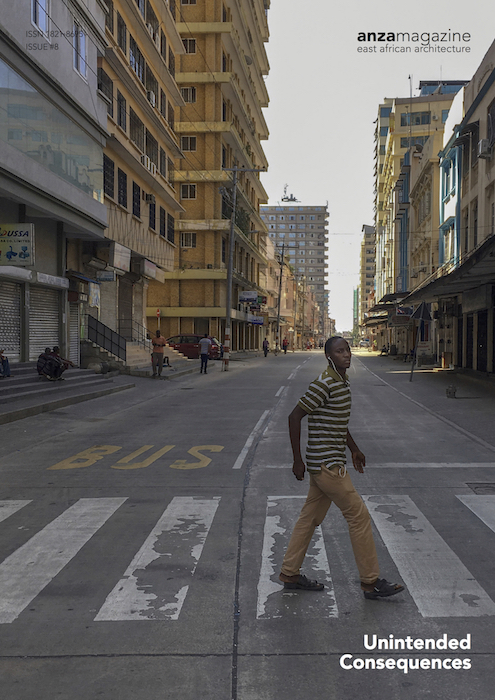
Cover for ANZA Magazine issue #8, ‘Untitled Consequences’. In collaboration with Baunetz Woche.
FRIDAY, 17 MARCH 2017 – CONFERENCE
9h-18h at TU Berlin, Hardenbergstr. 16-18, 10623 Berlin
RSVP to contact@nullurbannarratives.org
| Opening remarks | Gabriele Dolff-Bonekämper + Claudia Jürgens |
| PANEL A Narrating moderated by Claudia Jürgens |
Avehi Menon- Mapping the city through memory: Bangalore Storyscapes
Vittoria Capresi – Tell me about “your heritage”. Oral history as a tool to raise awareness and narratives as a way to rethink architecture Cord Pagenstecher – Forced Labour. The Testimony App by Berlin History Workshop Erica Abreu and Marcelo Murta – The voices from the community in the Brazilian favelas’ museums |
| Coffee | |
| PANEL B Multi-vocality moderated by Diane Barbé |
Jully Acuña – Heritage Descolonización of Indigenous People on the web
Maj Horn – How to map coexistence in urban landscape? Art project Maps for Copenhagen, an alternative self-organized guide to the city Farah Makki – Cultural heritage and Urban Value (Co)creation: Insights from Karmouz, Alexandria/Egypt |
| Lunch | |
| PANEL C Co-curation moderated by Comfort Badaru |
Monika Motylinska – Communicating Unwanted Heritage? The Case of the Technisches Rathaus in Frankfurt am Main
Mansion Art Collective – Self, City, Community: Mansion in Beirut Jerome Chou and Stephen Zacks – Heritage Activation – Reclaiming the Present and Future City in Flint, Michigan Ana Luisa Ribeiro – A Year in the Sertão – university, artistic creation and community in the Brazilian backlands Juliane Richter – When a space becomes a place. RASTER : BETON in the big housing estate Leipzig-Grünau |
| Coffee | |
| ROUNDTABLE DISCUSSION | What time is this place? moderated by Gabriele Dolff-Bonekämper and Philipp Misselwitz with Annika Seifert, Shraddha Bhatawadekar, Sarita Mamseri, Matthias Einhoff (TBC) |
| Closing remarks | Rachel Lee and Philipp Misselwitz |
FRIDAY 17 MARCH 2017 – EXHIBITION OPENING
20h-late at ZK/U, Siemensstr. 27, 10551 Berlin
| EXHIBITION OPENING | The shared exhibition ‘Juxtaposing Narratives’ presents the results of collaborations between artists, students and academics based in Tanzania and Germany, between 2015 and 2016. Art installations, multimedia inquiries and oral narratives collected during residencies in Dar es Salaam and Berlin approach the complex links between cultural identity, international migration, and the built environment in our globalised urban systems.
Cooking performances by Umesh Madanahalli and African Kingdom Restaurant (TBC) with speeches by Anne Fleckstein (Kulturstiftung des Bundes), Jan van Esch & Rebecca Corey (Nafasi Art Space, Dar es Salaam), Matthias Einhoff, Philip Horst & Harry Sachs (ZK/U, Berlin), Prof. Philipp Misselwitz Habitat Unit (TBC) |
| LIVE MUSIC AND DJ | Paul Ndunguru + Twaba (LIVE) Santuri Safari (DJ SET) |
Artists:
Cloud Chatanda
Rehema Chachage
Tellervo + Oliver Kalleinen
KUNSTrePUBLIK + Jan van Esch
Tassilo Letzel
Umesh Maddanahalli
Michelle Monareng
Patrick Mudekereza
Paul Ndunguru
Nadin Reschke
Alex Roemer + Johanna Dehio
More information about the artists and events here: www.urbannarratives.org/art
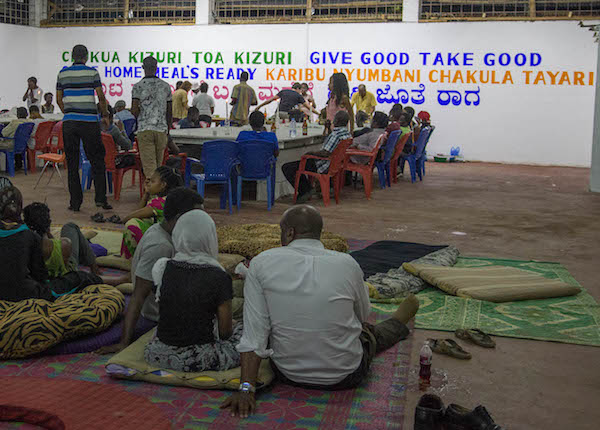
The cooking performance ‘Come Home, Meal’s Ready’ by Umesh Madanahalli at Nafasi Art Space Dar es Salaam in October 2015.
SATURDAY, 18 MARCH 2017 – CURATORIAL TOUR
15h-20h at ZK/U, Siemensstr. 27, 10551 Berlin
| CURATORIAL TOUR | 10 artists from Tanzania, Germany, India, South Africa and Finland present their work on urban heritage realised through the Simulizi Mijini residency exchange program (more information here) Tour guided by Jan van Esch and Rebecca Corey (Nafasi Art Space, Dar es Salaam) and the ZK/U team (Berlin). |
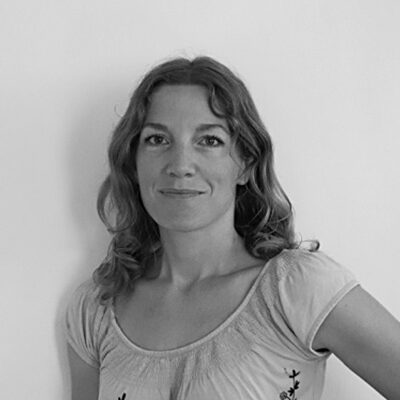
Annika Seifert
Annika Seifert is a lecturer in architecture at the University of Applied Science Lucerne. As a researcher at the Habitat Unit ... Read More
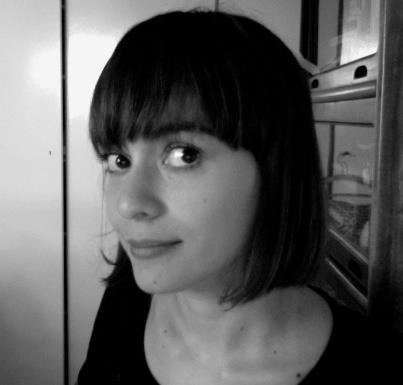
Ana Luisa Carmona Ribeiro
Ana Luisa Carmona Ribeiro teaches visual arts and design at Federal University of Western Bahia (UFOB), a new public institution in the Read More
1 APRIL 2016
SIMULIZI MIJINI INTERNATIONAL SYMPOSIUM
09h-17h @ The British Council
Samora Avenue, Dar es Salaam
RECEPTION
18h-20h @ Dar Centre for Architectural Heritage (DARCH)
Old Boma, Sokoine Drive, Dar es Salaam
International Symposium
Reconfiguring Urban Heritage from Below
Dar es Salaam, 1 April 2016
Urban Heritage: What is it? Whose is it? Who defines it?
Urithi m’jini: Ni nini? Wa nani? Nani anafafanua?
How can it build inclusive cities?
Urithi m’jini unawezaje kujenga miji shirikishi?
The Dar Centre for Architectural Heritage (DARCH) in collaboration with the Technical University Berlin and the Architects Association of Tanzania have the pleasure of inviting you to participate in the International Symposium Simulizi Mijini / Urban Narratives. We will present international examples of inclusive heritage practices and discuss their relevance for the context of Dar es Salaam.
Curated by Diane Barbé & Rachel Lee
We will be delighted to welcome you to the event! Free Admission. RSVP to darch . tz @ gmail . com (no spaces)
This project is funded by the TURN Fund of the German Federal Cultural Foundation.

